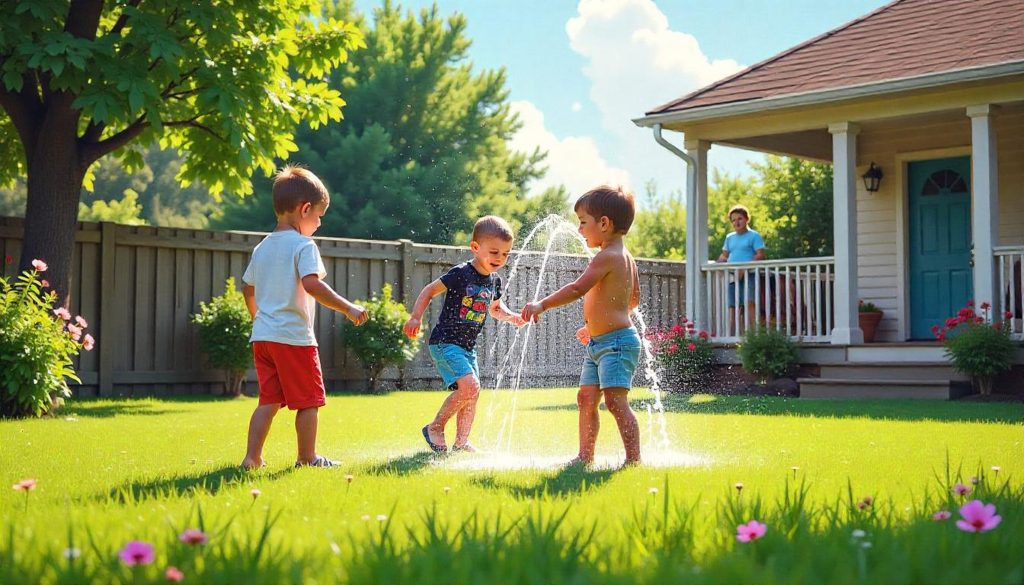Being a parent doesn’t stop when life gets hard—it often feels like the pressure only increases. And while you want to raise a resilient kid who can handle life’s ups and downs, doing that while navigating your own struggles can feel overwhelming. The truth is, resilience isn’t about having all the answers or never falling apart. It’s about learning how to keep going, ask for help, adapt, and grow. The good news? Teaching your child how to bounce back often starts with small, everyday choices—and yes, you can absolutely do it even on your hardest days.
1. Let Them See You Cope (Not Just Struggle)
Kids don’t need perfect parents—they need real ones. One of the best ways to raise a resilient kid is to show them how you manage stress or setbacks, even when it’s messy. Saying things like “I’m having a tough day, so I’m going to take a walk” models healthy coping in action. You don’t have to shield them from your emotions completely—just frame them in a way that shows solutions are possible. When kids see you keep going, they learn that hard times are something to move through, not get stuck in.
2. Encourage Problem-Solving, Not Perfection
Resilient kids aren’t the ones who always get it right—they’re the ones who keep trying when things go wrong. When your child faces a challenge, resist the urge to immediately fix it. Instead, ask guiding questions like “What do you think we could try next?” or “What might help you feel better right now?” This helps them build critical thinking and confidence. One of the easiest ways to raise a resilient kid is to normalize mistakes as part of learning, not failure.
3. Create a Safe Space for Big Feelings
Every kid will face disappointment, fear, and frustration—it’s not about avoiding those emotions, but learning how to sit with them. Make it clear that all feelings are welcome, even the hard ones. You can say things like “It’s okay to feel upset. I’m here with you while you figure it out.” When your child feels safe expressing themselves, they’re more likely to bounce back emotionally. Raising a resilient kid means teaching them that emotions aren’t a problem to solve—they’re part of being human.
4. Celebrate Effort, Not Just Outcome
Resilience isn’t built by constant success. It’s built by recognizing and celebrating the effort it takes to try again after things don’t go as planned. Instead of only praising wins, highlight moments of persistence: “You kept working on that even when it got tricky. That shows real grit.” This helps your child see value in effort and persistence, not just achievement. When you raise a resilient kid, you’re teaching them to measure progress by how hard they try, not how perfect they are.
5. Keep Routines—Even Small Ones
When everything else feels unpredictable, routines create stability. Even if life feels chaotic, small consistent rituals—like bedtime stories, morning hugs, or weekend pancakes—can help your child feel grounded. These predictable touchpoints offer emotional security and a sense of normalcy. You don’t need elaborate schedules to raise a resilient kid—just reliable moments of connection. Kids are better equipped to handle change when they feel anchored by what stays the same.
6. Focus on What They Can Control
When life feels overwhelming for you or your child, zoom in on what is in your control. Help them focus on manageable actions: getting dressed, packing their backpack, or choosing their snack. This builds a sense of autonomy and confidence, even during difficult days. One of the keys to raising a resilient kid is teaching them they’re not powerless, even in stressful situations. Empowerment, no matter how small, is a building block of resilience.
7. Be Honest About Your Limits—And Theirs
It’s okay to say “I’m doing the best I can today,” and it’s okay for your child to do the same. Resilience doesn’t mean pushing through until burnout. Teach your child that rest, boundaries, and asking for help are all healthy and necessary. When you model this in your own life, they learn to respect their limits too. To raise a resilient kid, you have to help them understand that strength includes knowing when to pause.
8. Surround Them With Encouragement, Not Pressure
There’s a big difference between cheering your child on and expecting them to carry the weight of your hopes. Resilience grows best in an environment where kids feel supported—not like they’re constantly being measured. Offer words like “I believe in you,” or “No matter what happens, we’ll figure it out.” Kids who feel emotionally secure are more likely to take risks, try new things, and bounce back from setbacks. Encouragement feeds resilience, while pressure often feeds anxiety.
9. Let Them Take Age-Appropriate Risks
It’s tempting to bubble-wrap your child when you’re struggling, but letting them take safe, age-appropriate risks builds independence. Whether it’s walking the dog, climbing higher at the playground, or solving a problem on their own, these small acts help grow confidence. You can raise a resilient kid by letting them feel a little discomfort in a safe, supported way. It teaches them they’re capable of handling challenges—even when you’re not holding their hand.
Even When You’re Barely Holding It Together—You’re Still Teaching Strength
You don’t need to have it all figured out to raise a resilient kid. In fact, showing your child how to keep going, feel deeply, and try again while also having hard days might be the most powerful lesson of all. Resilience isn’t perfection—it’s progress. And if you’re showing up with love, even when you’re struggling, you’re already doing more than enough.
What’s helped you raise a resilient kid—even during tough seasons? Share your thoughts or tips in the comments!
Read More:
How to Raise a Child Who Won’t Be Afraid to Speak Up
Is Gentle Parenting Creating Entitled Kids—or Building Strong Character
Catherine is a tech-savvy writer who has focused on the personal finance space for more than eight years. She has a Bachelor’s in Information Technology and enjoys showcasing how tech can simplify everyday personal finance tasks like budgeting, spending tracking, and planning for the future. Additionally, she’s explored the ins and outs of the world of side hustles and loves to share what she’s learned along the way. When she’s not working, you can find her relaxing at home in the Pacific Northwest with her two cats or enjoying a cup of coffee at her neighborhood cafe.









